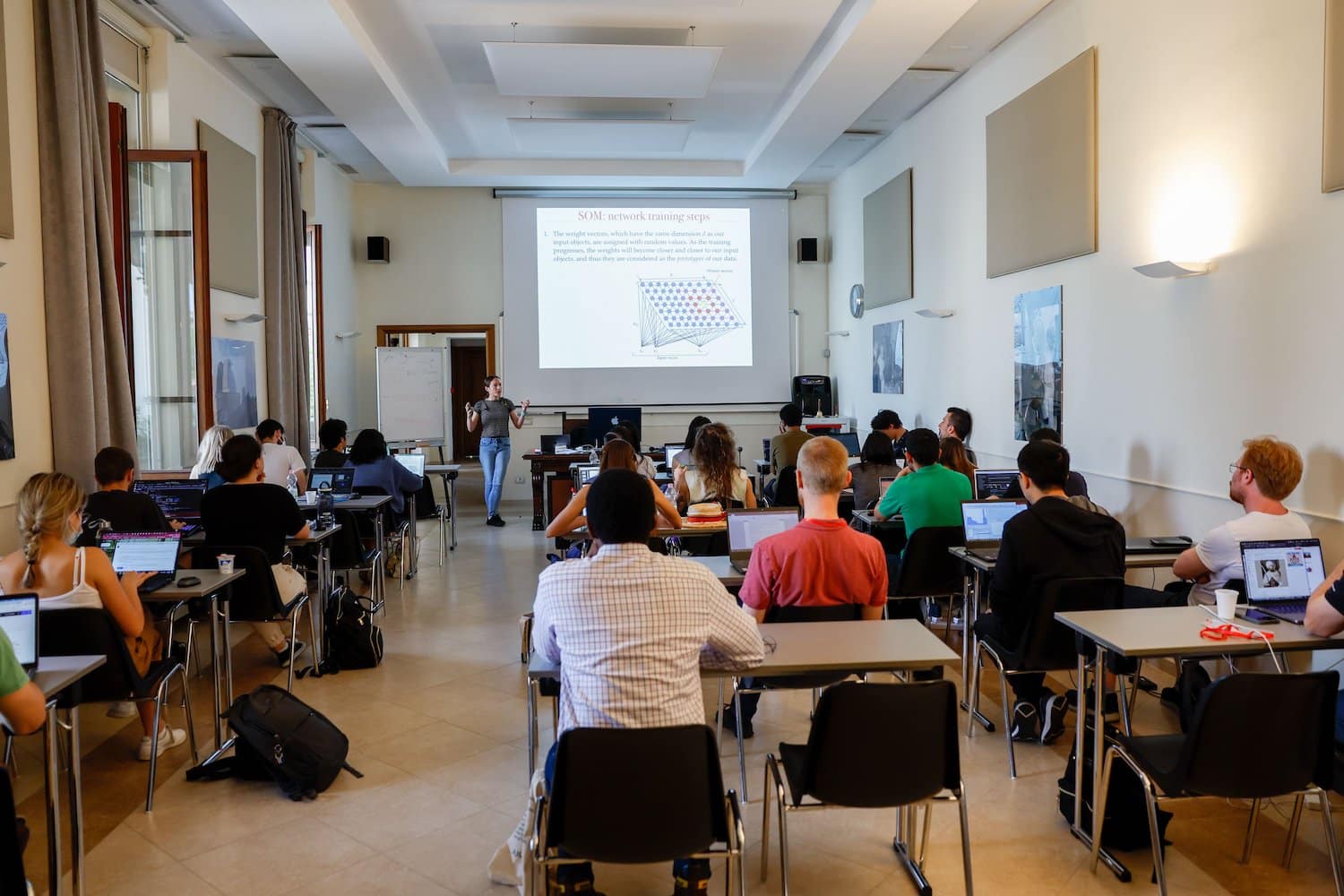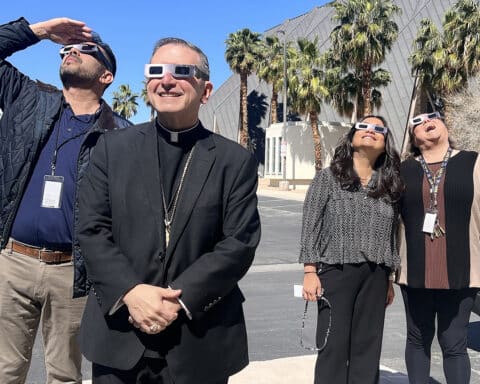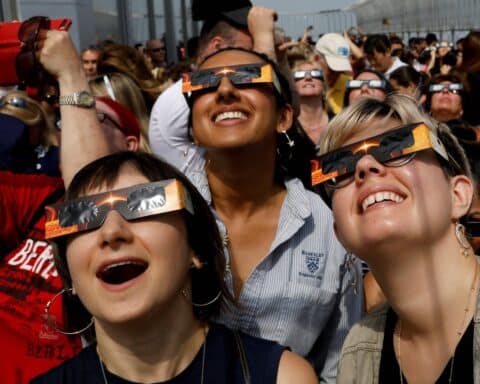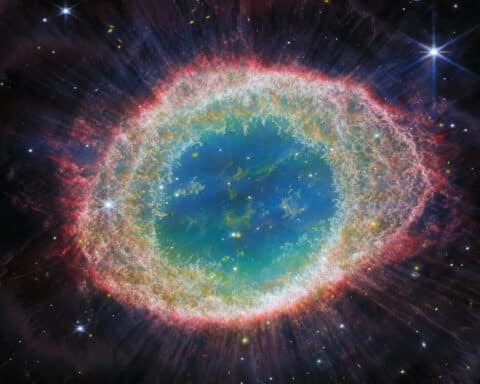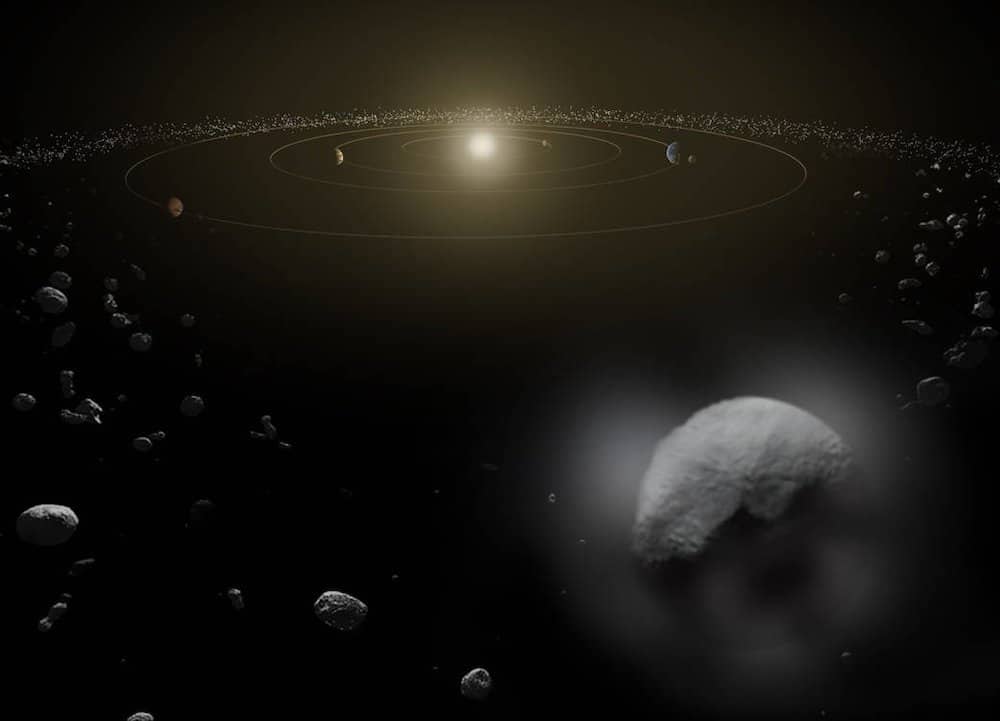ALBANO, Italy (CNS) — In the hilltop town home to the former summer residence of popes, two domes tower over residences and restaurants: the Baroque dome of a church topped with an iron cross and another that can be opened to reveal a now-retired optical telescope belonging to the Vatican’s astronomical observatory.
The twin domes symbolize the parallel aims of the Vatican Observatory as defined by its director, Jesuit Brother Guy Consolmagno: “To do good science and to show the world that our religion, our faith, motivates why we do the science.”
Speaking to Catholic News Service in the observatory’s modern home just outside the papal summer residence June 20, the Michigan native explained that the observatory traces its roots to the 16th century when Pope Gregory XII tasked his mathematical experts with reforming the calendar. The result was the Gregorian calendar, which is used worldwide today and was developed by an Italian astronomer and a Jesuit mathematician. Since the calendar was adopted in 1582 Jesuits have remained at the cutting edge of the Vatican’s astronomical research.
While light pollution has made serious observation impossible at the site — the observatory now operates a telescope in Arizona for that purpose — the observatory’s original home remains an important center for scientific research and a meeting point for the greatest minds in astronomy.
The observatory, said Brother Consolmagno, “is a wonderfully symbolic place, because we are not affiliated with any one party, any one side, any one argument; we are a place where people from different sciences and different opinions can come together.”
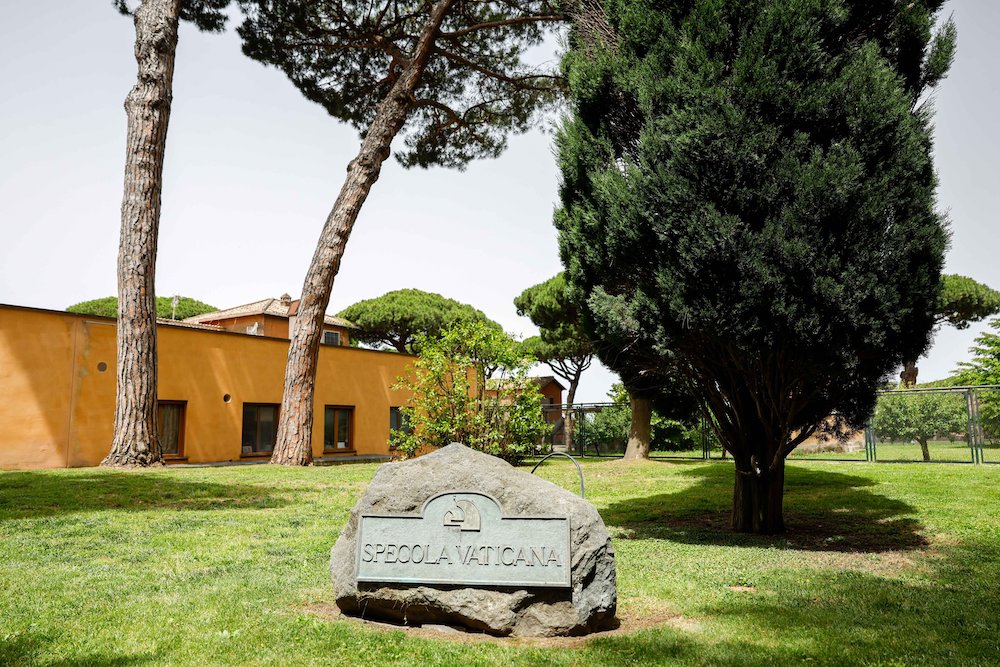
And for four weeks every other summer, it plays host to a small cadre of advanced undergraduate and beginning graduate students from around the world, bringing together rising astronomers to learn new techniques and methods to advance their research.
This year’s class, the first since 2018 due to a hiatus caused by the COVID-19 pandemic, is composed of 24 students representing 20 countries and selected from nearly 200 applicants. With many students coming from developing nations, there is no tuition fee and scholarship support for travel and housing costs is offered through the Vatican Observatory Foundation.
While faith is not a prerequisite for participating in the Vatican Observatory’s summer school, Brother Consolmagno noted that the observatory looks for students who “are not only brilliant scientists but are also open to experiencing more than just their career, more than just learning what’s in the classroom.”
“That is what makes you a richer human being,” he said; “that is the kind of activity, the kind of attitude, orientation that makes you more open to the possibility of faith.”
Danica Žilková, a doctoral student from Slovakia, said that’s what made the Vatican’s astronomy summer school different than other summer programs she attended.
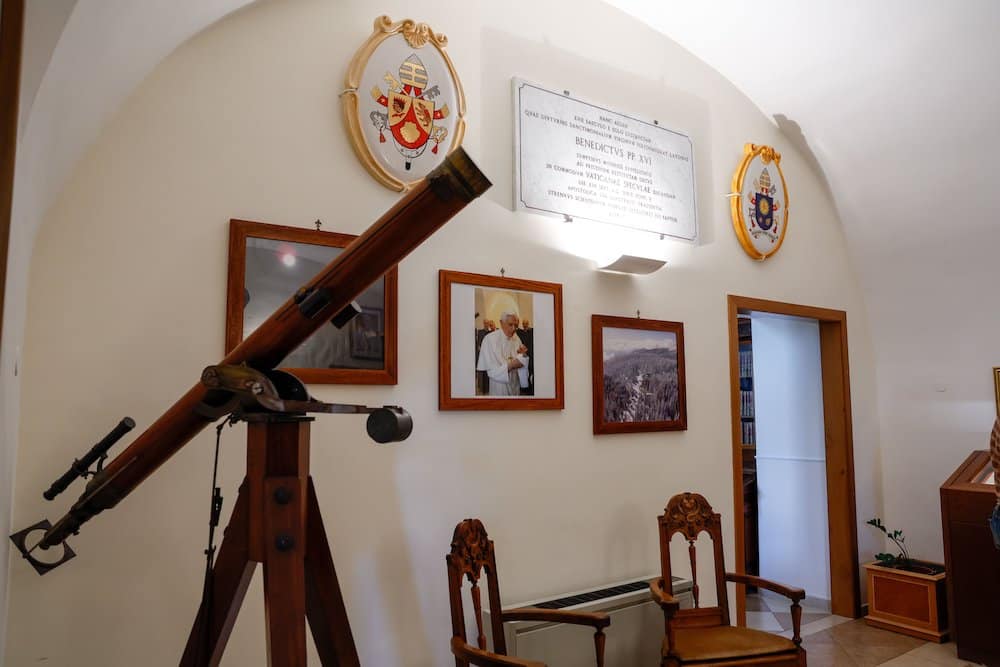
“Catholics, especially Jesuits, have the power to bring people together,” she told CNS June 20. “Our goals are similar at the end of the day, and we can come from different places from all around the world, but we are like one big family and that is incredible.”
Brother Consolmagno said some of the students “come from nations that are politically at odds with each other, but the students themselves work together, they get to know each other, they get to know each other’s cultures, and they realize that the search for truth is bigger than any momentary political divide.”
“This is neutral ground where everybody can come together as equals,” he said.
The theme for this year’s school was “Learning the Universe: Data Science Tools for Astronomical Surveys,” a topic the Jesuit called “timely” just over a year before the telescope at the Vera C. Rubin Observatory is expected to go online.
The Rubin observatory, currently under construction in Chile, will seek to catalogue the solar system and reveal insights into dark matter, among other areas — generating approximately 20 terabytes of imaging data per night. Its namesake is the famed astronomer Vera Rubin, who was an instructor in the Vatican Observatory’s first summer school in 1986, Brother Consolmagno noted with a smile.
“What’s happening right now in astronomy is something that’s never happened before, which is we’re having new telescopes which are going to collect so much data that it’s going to be impossible for humans to analyze all of it,” Siddharth Chaini from India told CNS. “What we need right now is a set of automated algorithms that can help us find stuff” among the heaps of data collected, he said, such as anomalies in light patterns that can give information about the material and size of objects in space.
By learning how to train those algorithms on test sets of data, researchers become comfortable with the data interpretation models before applying them to their practical research. In the case of Raúl González Díaz, a summer school student from Spain, that research consists of studying diffused ion gas, which allow the stark colors of galaxies to be seen in high resolution photos of space.
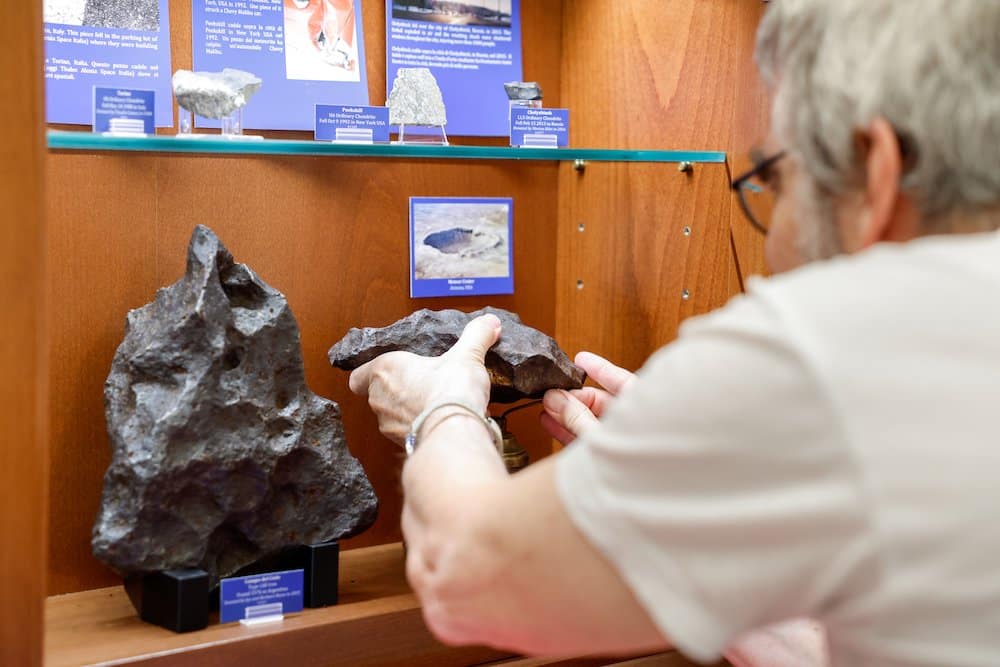
“The main problem is that you need high amounts of data with high resolution,” he told CNS. “We need new tools to reinterpret, to recalculate all this data,” which is why “these tools of data science, machine learning, deep learning, artificial intelligence, are useful for this type of research, because I have in the order of millions of spectral data that I need to use at the same time, so what I am learning here is so useful right now.”
Machine learning has created an inflection point in astronomy, yet Brother Consolmagno said the result is not ceding control of data interpretation to algorithms but rather “using the power of computers to give us a new way of looking at the universe.”
“We still have to make the decisions,” he said; “we still have to say, ‘that doesn’t sound right’ or ‘how can I test this?'”
Brother Consolmagno explained that dealing with the immense quantity of data produced by modern telescopes is much like navigating the repository of faith in the tradition of the Church: both are led by a pursuit of truth that embraces knowledge on an intimate level.
“The data are just raw numbers if you don’t actually immerse yourself in them with a point of view, with the questions you want to ask,” he said. Likewise, with respect to the councils and encyclicals in the theological tradition of the Church, “if you don’t live those documents, if you don’t live with the ideas and enter into them in prayer, then they’re just mere words.”
That pursuit of the truth continues at the observatory, a natural refuge some 20 miles south of Vatican City. Noting the signatures and letters from popes and astronomers that line the observatory’s hallways, Rodrigo Flores de Freitas from Brazil said the students “feel a connection to earlier generations of astronomers” who changed the way humanity looks to the stars, such as Father George Lemaître, the Belgian priest who first proposed the “Big Bang theory” on the origin of the universe.
“We as Catholics have been in science from the beginning. We should never be afraid of science, we should never be afraid of truth,” said Brother Consolmagno. “Anyone who tries to tell you, ‘You need to be an atheist to be a scientist’ is telling you a lie, and we are living proof of the exact opposite.”

